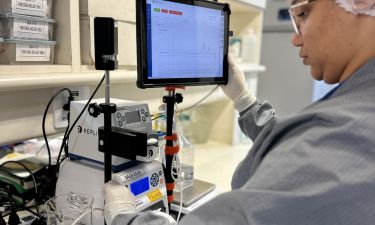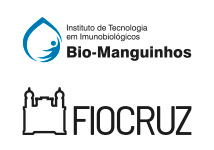 Fiocruz, through Bio-Manguinhos, has developed Brazil’s first national messenger RNA (mRNA) platform for vaccines and therapies. This achievement marks a scientific milestone for the country, ensuring its own capacity for research, development, and production of this cutting-edge technology.
Fiocruz, through Bio-Manguinhos, has developed Brazil’s first national messenger RNA (mRNA) platform for vaccines and therapies. This achievement marks a scientific milestone for the country, ensuring its own capacity for research, development, and production of this cutting-edge technology.
With a fully national platform, built with support from the Ministry of Health and funding from the Growth Acceleration Program (PAC), Fiocruz now has a technological platform that enables the rapid and lower-cost development of new products. For each disease, it is enough to insert the “genetic information” that will be used to induce the immune response, without the need to restart the entire process from scratch. The technology has already been filed with the National Institute of Industrial Property (INPI).
The first vaccine to be developed by Fiocruz using this technology will target Covid-19. Toxicology tests have already been completed, and clinical trials are expected to begin later this year. In addition, mRNA research is underway for vaccines against leishmaniasis and tuberculosis, as well as for therapies targeting diseases such as cancer.
According to Patricia Neves, leader of the RNA project at Bio-Manguinhos, “this achievement is an important milestone to position Brazil at the forefront of biotechnology, reinforcing our strategic role in expanding access to medicines in Latin America and Africa.”
mRNA-based vaccines work by giving instructions to the immune system to effectively and safely fight infectious agents. One of the key features of the Bio-Manguinhos platform is the lipid envelope, a fatty layer that protects the RNA developed with unique characteristics. This advance would allow independence from formulations of other companies, avoiding additional costs and strengthening the country’s technological autonomy.
This technology is strategic for strengthening Brazil’s Health Economic-Industrial Complex (CEIS) and the Unified Health System (SUS), as it enables the national production of innovative vaccines in less time and at lower costs. It expands access for the Brazilian population to next-generation immunizations and helps reduce global health inequities, positioning Brazil at the forefront of world science.
Since 2021, Bio-Manguinhos has been recognized by the World Health Organization (WHO) as a reference center for mRNA vaccines in Latin America. The institute began research in this field in 2018, initially focusing on therapies against breast cancer, and today consolidates its role as a key player in public health innovation.
Text: Marcela Dobarro
Image: André Rocha


